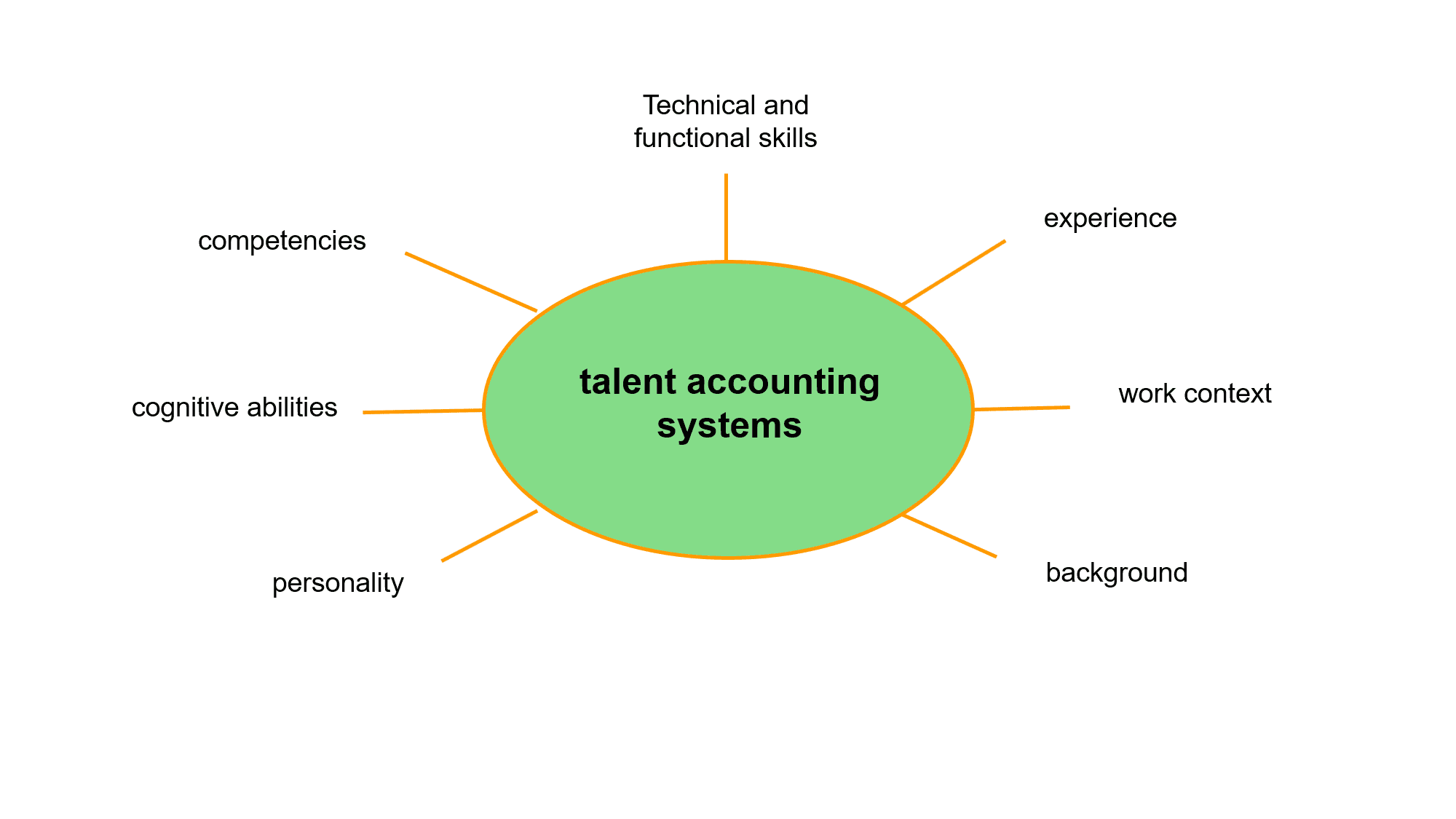What is Talent Management: objectives and perspectives
Why is it extremely important now to develop and take care of the most talented people, how to protect the work process when key employees are dismissed, what is talent management strategy and what to consider when creating it – here are the answers to these and other questions.
Talent management definition
The meaning of talent management is the methodically organized, strategic process of attracting the right talent and helping them develop to optimal ability in line with the goals of the organization.
Why is talent management important?
International giants including examples such as Google, Facebook, General Electric, Apple, Intel, Johnson & Johnson, Pixar and others have long moved into talent management. Smaller companies are catching on as well. Why? Because they see that this high approach helps the company develop and retain valuable professionals – they make it easier to achieve the company’s business goals, create additional value and competitive advantage.
Employees are more efficient, able and willing to create unique products. And companies that have learned how to manage and leverage talent qualitatively are more competitive, evolutionary and profitable.
What is more, HR talent management allows you to find a replacement for a key employee from among internal candidates in time, keeping the workflow on track.
But in order to retain and engage staff, it is important to create a custom engagement format that takes into account the needs of this pool of employees, their goals and expectations. That is exactly what talent management does, encouraging talented people to work even harder and deliver even more benefit.
What is talent management process?
The main components in this process are assessment, coaching, mentoring, and succession planning.
Assessment – determining potential and effectiveness is important both for newcomers and for those who are already employed. Depending on the specifics of the company and HR department policies, criteria may include executive ability, relationship building, skills, enthusiasm, ambition, ability and passion to learn, nature of motivation, and others.
Coaching. It is important to continually develop the promising employees. Professional coaches can help with this. If there is no such opportunity, you can train the company’s top managers in the basics of a coaching approach to management. This is more difficult, a task requires time and effort, but it is executable. Especially since the “in-house” people already understand the specifics, communicate daily with their colleagues and subordinates, and know where the pitfalls or “rakes” are.
Mentoring. A cycle of transferring to a colleague the special skills and abilities, valuable and relevant to the company. As a rule, the practice begins with general guidance, timely support and assistance in professional and organizational issues. Such attention from the company inspires the employee, and is especially important in the first months of work. In contrast to coaching, which can be applied ad hoc, mentoring can be used on a permanent basis in order to work through difficulties and limitations at some stage.
Continuity. It is important to share the accumulated experience qualitatively. After all, the company has already invested years and money to acquire it. Talent experience is always valuable and makes the work easier for successors. Previously, this was more about the management level and managers of different levels. But now, as the organizational paradigm is changing and becoming more flexible, succession plan can be extended to ordinary talent.
Mentoring and succession always benefit the internal talent pool. If a valuable employee suddenly leaves, he or she can be quickly replaced by someone who is still “growing”, but who is already “on track”. Internal candidates often have many advantages over external candidates: they already know the process, they understand the values, they are inspired by rotation or promotion, and they are ready to bring their own ideas and improve.
Some experts also consider talent acquisition – finding, attracting, selecting and retaining talent as part of the talent management tasks. The goal of this process is to find and integrate people with high potential, engagement, and achievement aspirations into the company. We will cover this topic in more detail later on.
How to identify the talented colleagues
The key is to assess potential at the very beginning. But while emotional potential can still be measured (e.g. through psychometric tests), determining engagement or commitment to win is more difficult, even if the candidate has a proven track record of success.
For this purpose, even before hiring begins, the requirements that the desired candidate shall meet are formed. For example, in some skills that are highly relevant to the company. These can also include goal achievement, career development, proactive position, exclusive experience or seniority, etc.
Among the tools for determination can be a series of test tasks, a pool of questions and desired answers for the job interview approved by the team leader, own tools for checking the required competences.
Who should look for talents and interact with them?
At innovative companies, a talent manager is responsible for working program with the talents. As a rule, an employee comes to him or her after onboarding, which consistently shows noticeable results. As a rule, the talent is already “felt” six months (or a year) after the start of work in the company.
The objective of the talent manager is to create a special microclimate so that people feel comfortable, actively develop and maximize their talents and show their performance.
The most common formats of cooperation with the talents include:
- personal – when both a coach and a company expert, who knows all the processes, work with the talents;
- group – by creating a common information environment (corporate social networks and portals, for example) where participants exchange experience and consult with each other in real time.
What does talent management in the organization start with?
Before getting the idea of implementing this system in their company, it is important for top managers and HRDs to go through some issues. For example,
- Do we need talent management model?
With all the promise, small or new businesses and startups can function without this system. The development of this model depends on corporate policy of human resources and workforce.
- Whom in our company would we consider to be talented?
Here, it is important to define the criteria of the “talent” you need and understand what these people are interested in, what inspires and motivates them, what you expect from them, etc.
- What are the most appropriate methods of interaction with the talent?
Again, we have to start from the portrait of the target audience, its motivation and interests.
- Who will implement and supervise the work with the talents?
In any organization, there are authoritative employees who are listened to and valued for their experience – they can be a part of the talent management process and development team.
5 methods to express love to a talented colleague
Talented employees are especially sensitive to how they are perceived by the team and management. You can emphasize your sincere attitude towards them and express your respect with the help of…
- words. Information about brilliant employees can be placed in social networks, on corporate portals, external expert resources. The main thing is to sincerely note their merits and breakthroughs.
- time. It is pleasant for the employee to see how the company invests in him the most valuable resource – time. This shows a special attitude and emphasizes the importance.
- awards. Most employees enjoy small, original awards, received at a New Year corporate party or through a serious gamified work platform.
- help. Wise support is important. For example, to solve their problem or a painful issue in time – whether it is an issue of passing certain courses, work with a coach, sessions with a psychologist, etc.
- interactions. We are talking about organizing special, niche events for talented employees – personal or team events.
Тalent management meaning: сonclusions
We have learned that talent management strategy is in direct contact with the process of retaining and, of course, developing and rewarding employees who apply themselves and help achieve and exceed the company’s business goals. Rational, measured talent management model helps ensure that valuable employees do not even think about changing jobs because they are engaged, satisfied, and feel needed and valued.
Creation of this system is not an easy and quick process, requiring an understanding of top management and recruitment, analysis of the situation and honest answers to many questions, from “do we need it” to development of the own assessment program and formats for interacting with the talented colleagues.
You should also understand that a talent management system will hardly get accustomed in companies with a rigid, “patriarchal” management model, unstable management and where employees are forced to dominate in order to achieve at least minimal growth. In other cases, talent management is one of the best ways for a company to move to the next level.


